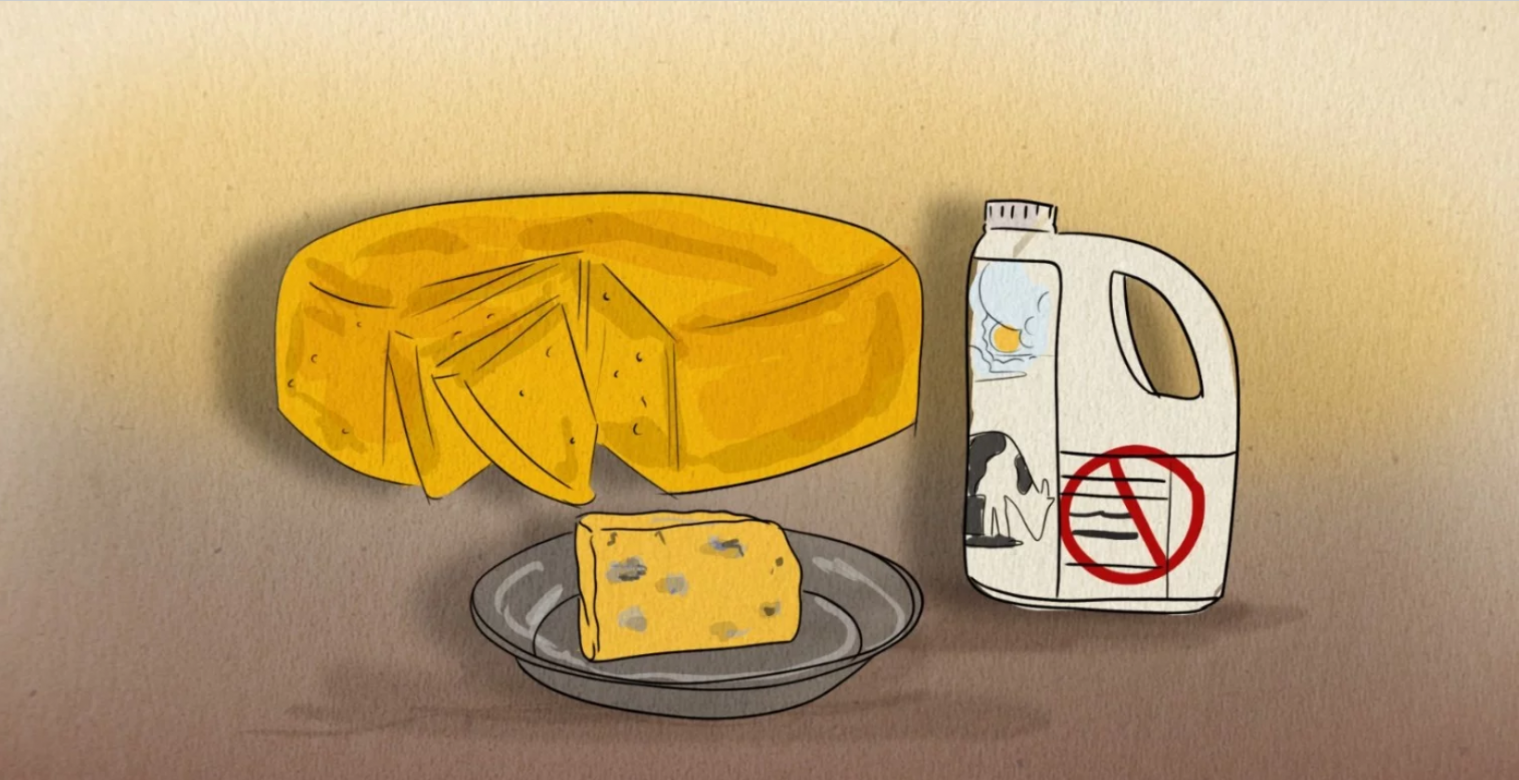Amany Shhada
A number of citizens in the Gaza Strip complained about the presence of spoiled dairy products and cheeses in shops, despite the fact that the expiry date recorded on the packaged packages has not expired.
One of these residents is Muhammad Faraj, who lives in the Nuseirat refugee camp in the central Gaza Strip. He used to check the production and expiry dates of food products before buying them, but he had an accident that made him hesitate several times before buying any product.
Faraj says that one day he returned home loaded with canned dairy and cheese and served dinner to his children and wife, but the shock was when he opened it and saw mold eating her face.
The man immediately returned the rotting milk cobs to the shopkeeper and decided not to buy from him again despite apologizing for what had happened.
Faraj points out that he sees a lot of products displayed in public places, street sidewalks, and others. Including white and yellow cheeses and other foodstuffs, in return, he prefers only to buy products kept in the refrigerator.
Despite his caution, the man did not escape the net of buying a spoiled product. These events are repeated despite the fact that Palestinian law reserves the right of all citizens to adequate food.
According to the Consumer Protection Law in Articles (2) and (3) respectively, the consumer has the right to ensure that he is not exposed to any health risks, injustice, or economic losses. The consumer also has the right to maintain his health and safety when using the good or service in terms of quality and quality.
Citizens' complaints about spoiled foods increase during periods when offers on product prices are active, in addition to summer periods when temperatures rise in conjunction with frequent power outages.
The "Last Story" is based on videos it received from people who documented the spoiled cheese products they bought.
A number of citizens in the Gaza Strip complained about buying dairy products and cheeses that they discovered were spoiled after opening them, despite the fact that the expiry date recorded on the packaged packages had not expired.
Shaima Ghazi, who went to buy from a shop in Gaza City after the price of dairy products was announced, said, "I bought some of them, but I was surprised when I opened them with rot."
Gazans are embracing campaigns of 'discounts' on food products followed by some shops and malls, which may be a short period of time away, often not exceeding a week. This is due to the deteriorating living and economic conditions suffered by about 80% of the population of the Gaza Strip.
Shaimaa, who lives in the northern Gaza Strip, recounts the details of the incident that took place with her, for "Last Story": "I got very angry and yelled at the grocery owner, I couldn't bear to be poisoned with my family because of the damaged products, and I don't care if he caused the problem or otherwise."
Shaimaa's anger came as a reflection of her fear for the health of her elderly parents, whose bodies cannot tolerate any neglect or negligence, especially in light of their chronic diseases like other adults. Where official statistics show that two-thirds of the elderly in Palestine have at least one chronic disease.
Amna Mahmoud, a mother of two who lives in the same area, said that one of her children offered her strawberry milk, saying, "Mama tastes very sour," which made her check it to find it damaged and then throw it in the waste and be more careful when buying products than the safety of the product.
Mustafa Reda, a food grocery store owner in the central province, blamed distributors and suppliers who provide products from their main sources for the presence of spoiled food products despite their non-expiry.
According to government sources, there are between 9-15 dairy factories in the Gaza Strip, four of which have a high production capacity and competition in the local market, while the rest are small production units based on the manufacture of municipal cheese, labneh and "Buttermilk" only.
"Some traders and distributors leave products uncooled inside transport vehicles from early morning until late night, causing them to rot as a result of the activity of harmful bacteria inside," Reda told "Last Story".
He pointed out that some merchants refuse to return damaged products, which leads shop owners and consumers to throw them into the waste while incurring a financial loss.
Reda, who has resorted to setting up a grocery store as a source of income and has overcome unemployment of more than 40% in society, says he is embarrassed by citizens' complaints about spoiled products, which damage the reputation of groceries.
However, Nael Wadi, a food distributor, said they are keen to transport products that may be subject to rapid spoilage, such as milk and others, to shops at short times and refrain from transporting them in the afternoons to avoid sunlight.
Although Wadi does not have an armored and air-conditioned bus to transport his goods, he attributes the presence of spoiled products in shops to prolonged power outages of up to 8-12 hours a day, while many small grocery owners may not be able to provide alternative power lines, he said.
In light of the responsibility of both shop owners and suppliers, the "Last Story" went to the Consumer Protection Department at the Ministry of Economy in the Gaza Strip to determine its ability to issue punitive measures to violators to protect consumers from health risks.
Engineer Nafez Al-Kahlout of the Department of Consumer Protection refused to consider the repeated exposure of citizens to buy damaged products as a widespread phenomenon in the Gaza Strip, and considered the case of product corruption inside the packages as 'rare'.
Al-Kahlout explained that product damage occurs in two cases: poor storage, whether inside the sector or at the time of import from abroad, noting that his ministry receives complaints from citizens or shop owners; This is so that the law takes its course in the event of fraud when buying products, through the application of an economic report on the mobile phone or through the multiple means of communication announced by the Ministry.
Despite the complaints of some citizens and shop owners, the destruction of products and their losses, and the Ministry of National Economy limiting the problem as 'rare', these incidents are frequent and persist, especially in the summer and high temperatures.




Spoiled Dairy Products